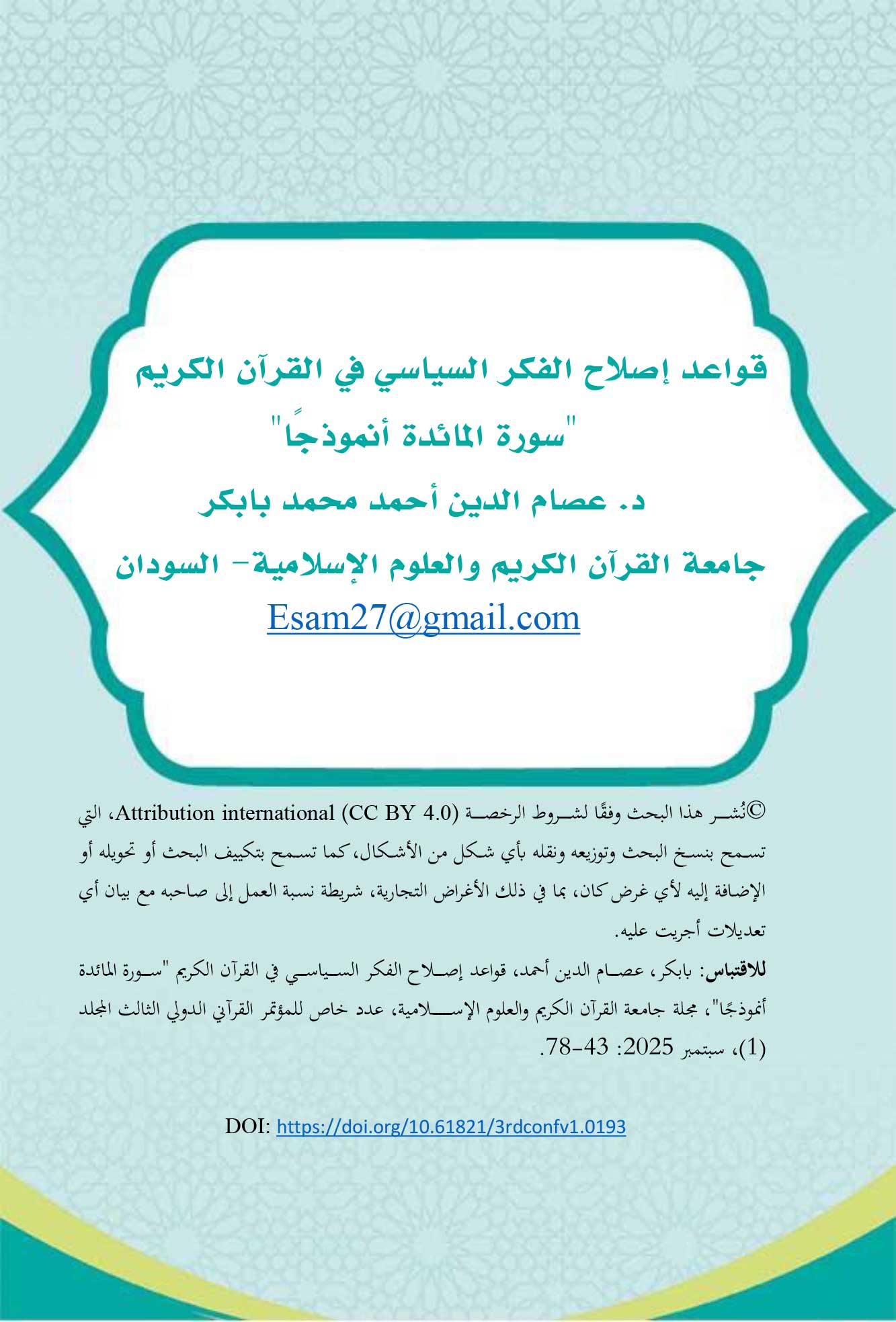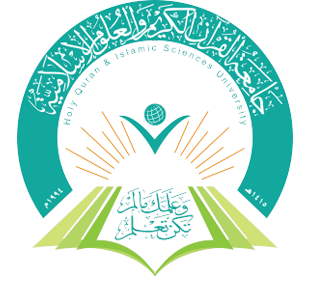Rules for Reforming Political Thought in Holy Qur'an, "Surat al-Ma'idah as a Model."
DOI:
https://doi.org/10.61821/3rdconfv1.0193Abstract
Rules for Reforming Political Thought in Holy Qur'an, "Surat al-Ma'idah as a Model." The significance of this research lies in its attempt to derive methodological rules that enable those who follow them to practice their political work after reforming their thought in accordance with Qur'an's approach, which guides to the straight path. The research Objectives are: To demonstrate that Holy Quran is the origin and foundation of every reform project intended to guide humanity in this life and the hereafter. To derive from Surat Al-Ma'idah methodological rules for reforming Islamic political thought and correcting the thinking and behavior of politicians. Research Problem: It is noted that many Muslims lack clarity in the concepts of Islamic politics, exacerbated by the weakness of politicians' thinking and their poor Islamic knowledge! To what extent can Holy Quran, the book of guidance and the constitution of life, reform our political life? Can we derive guiding principles that will reform our political thinking, so that our lives may be reformed in accordance with the divine approach? The research will adopt the historical approach in extrapolating rules and guidance from sources and references, and the descriptive analytical approach in deriving reform rules.
the results: The approach to reforming political thought in Surat Al-Ma'idah involves affirmation and change, as it affirms and develops truth based on Islamic values, and replaces falsehood with truth that benefits humanity without causing harmful harm. Abolition, preservation, affirmation, and change are linked to goodness and corruption. Whatever is good is affirmed and maintained, while whatever is corrupt is changed and abolished
Downloads

Downloads
Published
Issue
Section
License
Copyright (c) 2025 Journal of the University of Holy Quran and Islamic Sciences

This work is licensed under a Creative Commons Attribution 4.0 International License.
©This article is an open access article distributed under the terms and conditions of the Creative Commons Attribution (CC BY) license












